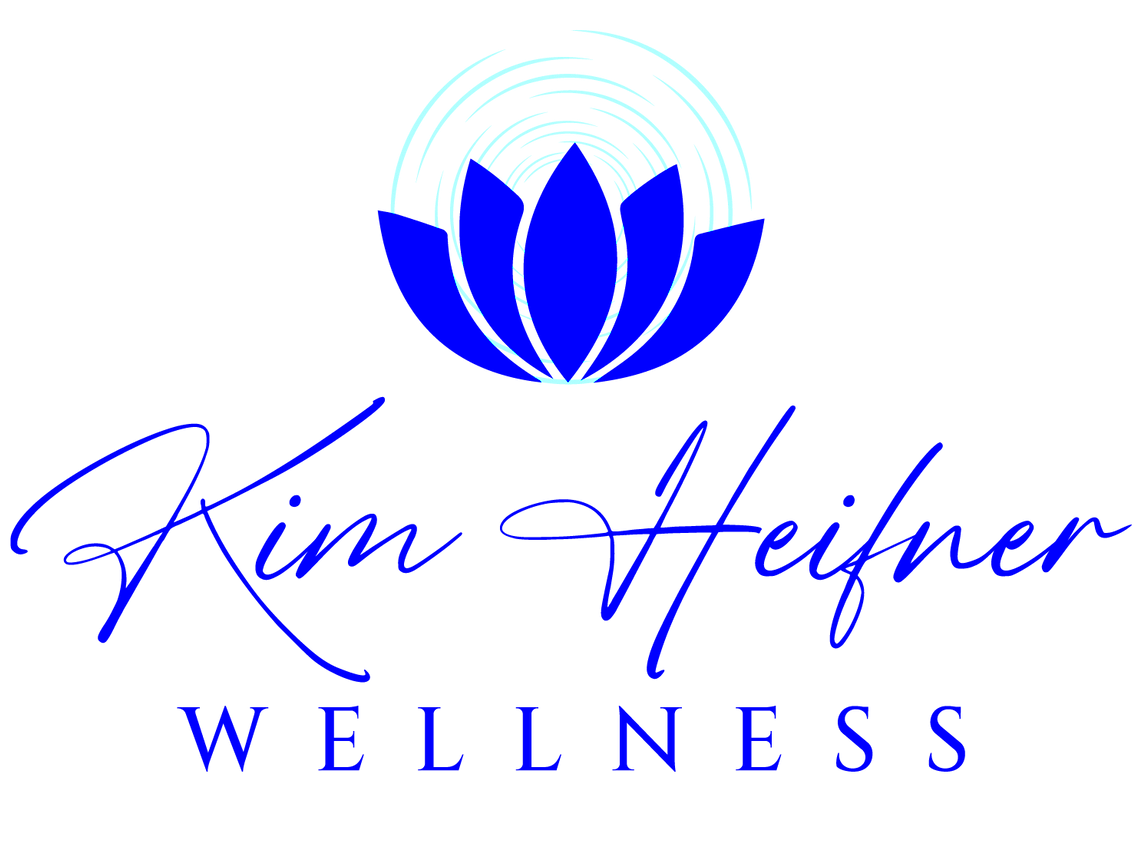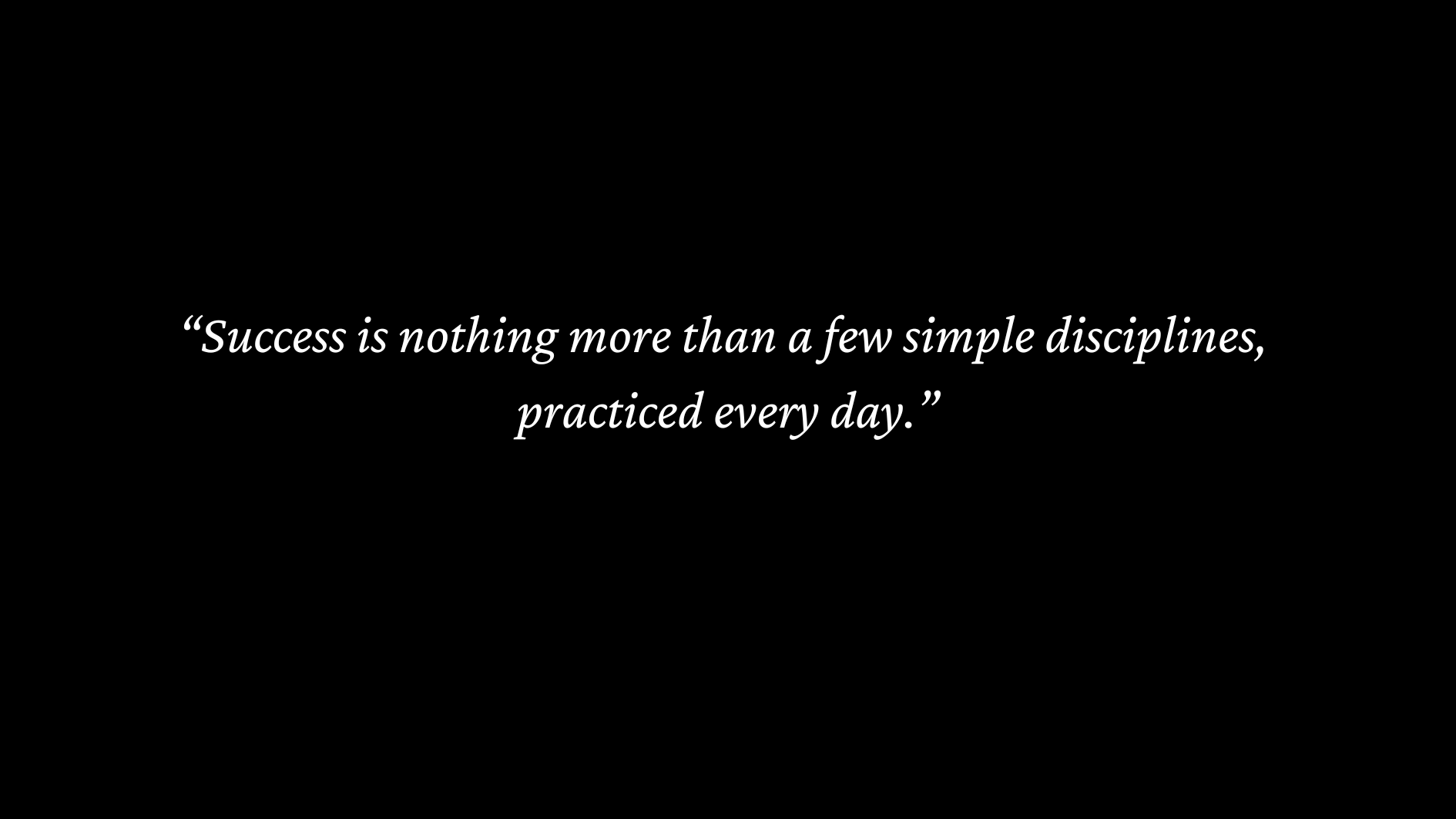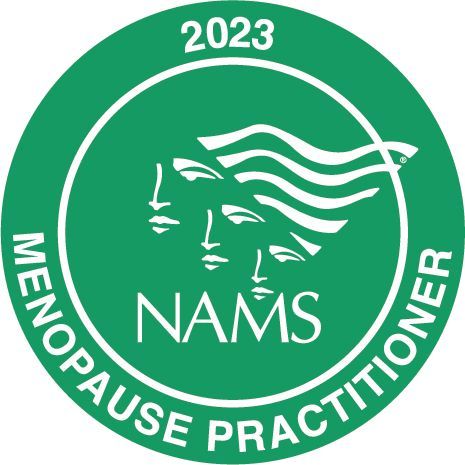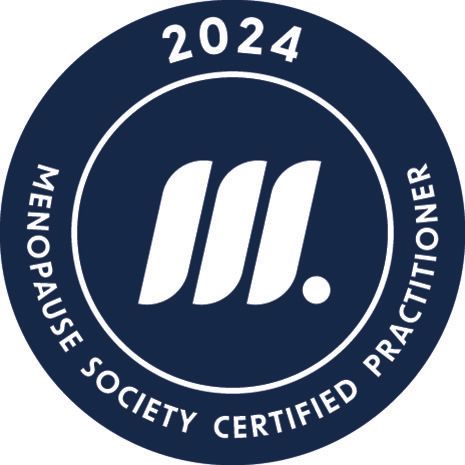
Thriving Through Menopause: A Guide to Health, Harmony, and Taking Charge!

Menopause: Understanding the Transition and Its Impact.
Menopause is a universal milestone in every woman’s life, marking the end of her reproductive years. However, it’s important to recognize that menopause is not an isolated event. The years leading up to menopause, known as perimenopause or the "menopause transition," are often the most symptomatic and can last 4 to 8 years, with the average being 7 years. During this phase, women may experience irregular menstrual cycles, hot flashes, night sweats, mood swings, low libido, vaginal dryness, and sleep disturbances. During these years, many women commonly report, "I just don't feel like myself anymore." This statement accurately reflects the experiences of many women during perimenopause. The phrase captures the essence of the physical and emotional changes that occur during this transition. Understanding that these feelings are common and valid is an important step in navigating the menopausal transition. It's not just "in your head"—the changes you're experiencing are real and significant!
Many women falsely believe menopause begins suddenly around age 50. In reality, hormonal shifts and declining ovarian function can start as early as a woman’s mid-30s or early 40s. Adding to this confusion is the societal dichotomy surrounding menopause—whether it should be seen as a natural transition or a disease state requiring treatment. Combined with associated stigmas, it’s no wonder that this pivotal life stage is often misunderstood, leaving many women unprepared for its physical, emotional, and social effects.
Why Is This Topic Important?
Menopause is far more than the cessation of periods; it is a transformative phase that impacts nearly every organ system in the body due to declining estrogen levels. Estrogen is a key hormone that influences everything from cardiovascular health to brain function. As its levels drop during menopause, the effects are widespread:
- Heart Health: Estrogen helps protect against cardiovascular disease by maintaining healthy blood vessels and cholesterol levels. Its decline increases the risk of heart disease in postmenopausal women.
- Bone Health: Estrogen supports bone density. Its decline accelerates bone loss significantly during menopause. Women can lose 10–12% of their bone density at the spine and hip within the first five years of menopause, increasing the risk of fractures dramatically.
- Cognitive Function: Estrogen plays a role in memory and brain function. Its decline has been linked to an increased risk of cognitive impairment and dementia.
- Sleep Disturbances: Declining estrogen disrupts neurotransmitters like serotonin and melatonin, which are critical for sleep regulation. It also impacts circadian rhythms—the body’s internal clock—leading to insomnia, frequent awakenings, and poor-quality sleep. These changes often exacerbate other menopausal symptoms like fatigue, cognitive impairment, and mood swings.
- Mental Health: The hormonal fluctuations during perimenopause can disrupt serotonin levels in the brain, increasing vulnerability to depression and anxiety. This is particularly significant for women with prior mental health conditions.
- Metabolism and Weight: Hormonal changes contribute to metabolic shifts and weight gain, particularly around the abdomen. These changes can increase the risk of diabetes and other metabolic disorders.
Despite these far-reaching effects, menopause remains under-discussed in both healthcare settings and society at large. This lack of awareness often leads to delayed diagnosis, inadequate care, and diminished quality of life for millions of women.
Why Should It Matter to You?
As a nurse practitioner specializing in menopause care, I see firsthand how this life stage impacts women’s health and well-being. Here’s why it should matter to you:
1. Empowerment Through Knowledge
- Understanding perimenopause and menopause equips you to recognize symptoms early and make informed decisions about your care. Whether it’s managing hot flashes or addressing long-term risks like osteoporosis or heart disease, knowledge is your strongest ally! Many women spend years suffering unnecessarily because they don’t recognize their symptoms as part of the menopause transition. For example, insomnia or anxiety might be dismissed as unrelated stress rather than linked to hormonal shifts.
- By educating yourself, you can advocate for timely and effective care, reducing the risk of long-term complications like fractures or cardiovascular disease.
2. Improved Quality of Life
- Menopause doesn’t have to mean suffering in silence. With advancements in treatment options—ranging from hormone therapy (HT) to non-hormonal solutions and lifestyle changes—you can alleviate symptoms and maintain your vitality. Research shows that untreated menopausal symptoms significantly reduce quality of life, with impacts on work productivity, relationships, and mental health.
- Addressing these symptoms proactively can help you feel like yourself again, whether that means sleeping soundly through the night or regaining the energy to pursue your passions.
3. Breaking the Stigma
- For too long, menopause has been shrouded in silence and shame, often dismissed as a "women’s issue" or a natural part of aging that doesn’t require attention. This stigma has real consequences: Women often feel embarrassed to discuss their symptoms—even with healthcare providers—leading to delays in diagnosis and treatment.
- In professional settings, stigma can result in women hiding their struggles at work for fear of being perceived as weak or less competent. This has led to significant career disruptions, with many women leaving their jobs during the prime of their careers.
- Breaking the stigma is not just about improving individual lives—it’s about creating a cultural shift where women feel empowered to seek help without fear of judgment. By speaking openly about menopause, you contribute to normalizing these conversations for future generations.
4. Taking Control of Aging
- Menopause is often seen as a marker of aging—a time when women feel "invisible," or that they are losing their youth. But this narrative is outdated and harmful. Menopause is not an end; it’s a new beginning—a chance to redefine what aging means on your own terms:
- Health Longevity: Declining estrogen increases risks for conditions like osteoporosis and heart disease, but these risks can be mitigated with proactive care such as exercise, healthy eating, and medical interventions like HT. Taking control now sets you up for decades of healthy living!
- Reclaiming Identity: Aging doesn’t mean losing your identity; it means evolving into a new phase of life where you can focus on yourself—your goals, health, and happiness. Many women find this phase liberating as they shed societal expectations tied to youth and fertility.
- Changing the Narrative: By embracing menopause as a natural transition rather than a decline, you challenge societal norms that undervalue older women. You have the power to redefine aging as a time of strength, wisdom, and opportunity.
What Can You Do?
Here are actionable steps you can take today:
Seek Professional Guidance: Consult a healthcare provider who specializes in menopause to discuss your symptoms and treatment options.
- Adopt a Healthy Lifestyle: Follow your own circadian rhythm to improve sleep quality and energy levels.
- Practice stress reduction techniques like meditation, yoga, or deep breathing exercises.
- Incorporate resistance training to maintain muscle mass and bone density.
- Prioritize protein and fiber in your diet to support metabolism and digestive health.
- Ensure a diet rich in calcium and vitamin D for bone health.
- Make time for activities and people that bring you love, purpose, and joy!
- Explore Treatment Options: Hormonal therapies like HT or non-hormonal alternatives can effectively manage symptoms like hot flashes or vaginal dryness.
- Monitor Your Sleep Health: If sleep disturbances are affecting your quality of life, consider discussing melatonin supplementation or other sleep aids with your provider.
- Join Support Networks: Connect with other women going through similar experiences for emotional support and shared advice.
These lifestyle changes and strategies can significantly improve your overall well-being during the menopausal transition and beyond!
Embracing the Journey: A New Chapter of Empowerment
As we conclude this guide, it's crucial to reframe our perspective on menopause. Far from being a time of decline, this phase of life offers a unique opportunity for wisdom, self-discovery, and personal growth. Research shows that women who actively engage in managing their menopausal transition report higher overall satisfaction with aging. This isn't just about surviving menopause—it's about thriving through it and beyond.
Menopause is a deeply personal journey, different for every woman. It brings challenges, yes, but also incredible opportunities for transformation. By embracing lifestyle changes, seeking support when needed, and prioritizing your physical and emotional well-being, you can navigate this transition with confidence and vitality. Remember, you're not alone on this journey. Breaking the silence around menopause is crucial—not just for ourselves, but for all women. Every one of us deserves to feel empowered, understood, and supported at every stage of life.
If you're feeling overwhelmed or unsure about how to make these years your healthiest and happiest yet, know that help is available. As a menopause specialist, it's my passion and privilege to guide women through this transformative time. I'm here to help you become the best version of yourself during these years and beyond. Don't let uncertainty hold you back from embracing this new chapter of your life. If you're ready to take control of your menopausal journey, to feel vibrant, confident, and truly yourself again, I invite you to book an appointment with me. Together, we can create a personalized plan that addresses your unique needs and goals.
In Health,
Kim Heifner, FNP-C, MSCP















